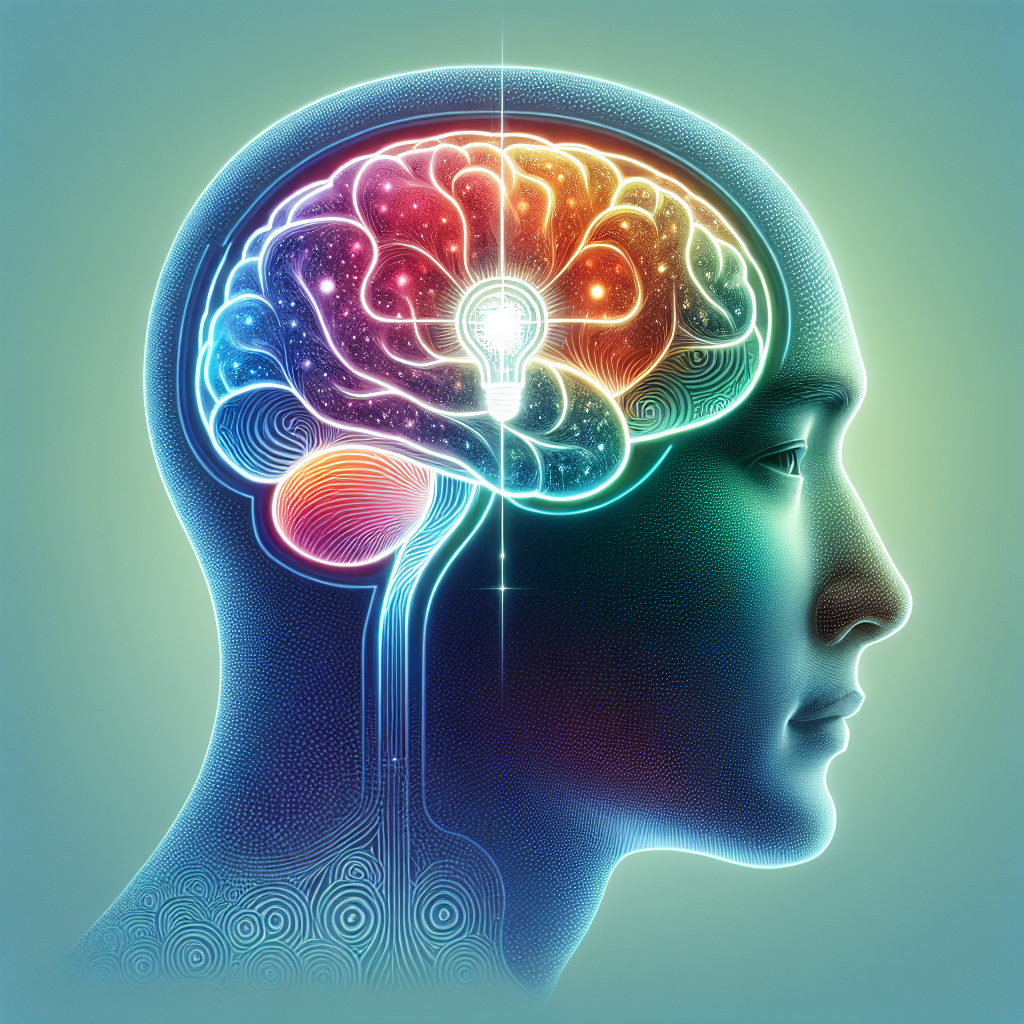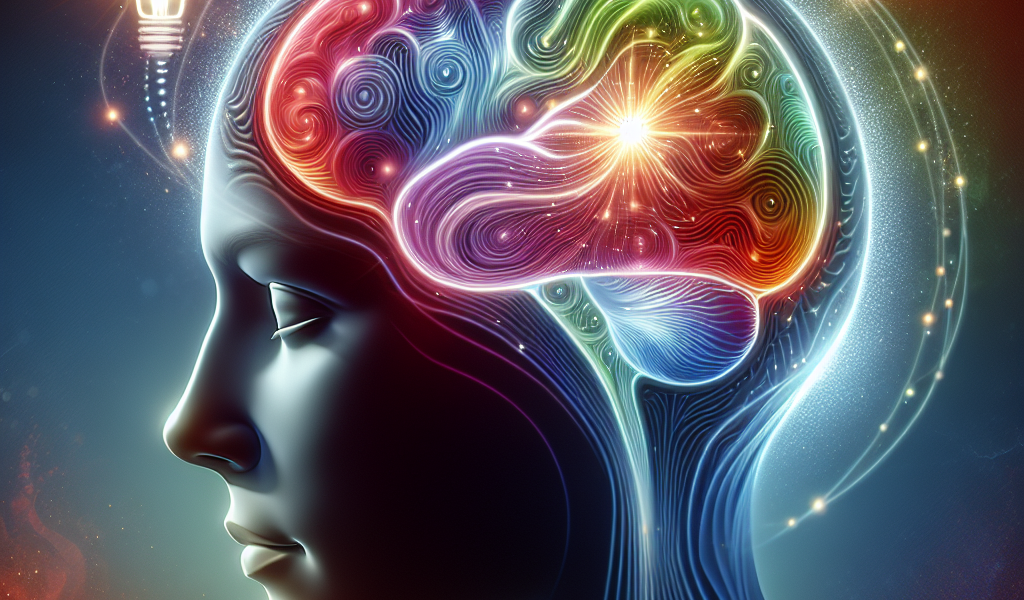Can Memory Techniques Be Effective For Individuals With Memory-related Disorders?
The moon holds secrets, so do our minds. Sometimes those secrets become misty and forgotten, like memories fading into fog. When you have a memory disorder, this fog becomes your daily reality. But imagine if there was a way to chart your way through this fog? The article, “Can memory techniques Be Effective For Individuals With Memory-related Disorders?” explores the potential of memory techniques to assist individuals struggling with memory disorders. Just as a lighthouse guides lost ships through a tempest, these techniques could transform into a beacon of clarity and remembrance, illuminating the obscured corridors of your mind. This piece opens up a fascinating dialogue about how these techniques can reshape your experience of memory and redefine the notion of possibility itself within the context of memory disorders.

Understanding Memory-Related Disorders
The human mind is a marvelous universe of thoughts, emotions, ideas, and mostly importantly memories. When functioning optimally, our memory allows us to record, retain and recall information. However, when memory goes awry, it can lead to a range of disorders.
Defining memory-related disorders
memory-related disorders refer to a group of conditions that predominantly affect memory function. These disorders can either be neurodegenerative, such as Alzheimer’s Disease and Parkinson’s Disease or psychiatric in nature, like Post-Traumatic Stress Disorder (PTSD). They could also be a result of certain physiological conditions such as hormonal imbalances, nutritional deficiencies or injuries. In the simplest terms, a memory-related disorder is any condition that significantly hampers one’s ability to remember things.
Common types of memory disorders
The most common types of memory disorders include Alzheimer’s Disease, Dementia, Mild Cognitive Impairment, and Amnesia among others. Each disorder presents unique symptoms and affects memory function differently. For instance, Alzheimer’s Disease primarily affects older adults and is characterized by deterioration in memory, language, problem-solving and other cognitive skills.
Symptoms and diagnosis of memory disorders
Memory disorders often manifest as forgetfulness or loss of memory, however, other symptoms like confusion, difficulty in articulating thoughts, mood shifts, and loss of cognitive skills may also be noticed. Diagnosis usually involves clinical assessments, neuropsychological testing, and in some cases, neuro-imaging techniques such as MRI or PET scans to scrutinize brain function.
General Overview of Memory Techniques
Although the idea might evoke images of magicians or mentalists, memory techniques are in fact, scientifically-backed cognitive strategies used to improve and expand the capacity of our memory.
Different types of memory techniques
The world of memory techniques is a vast one, featuring strategies ranging from mnemonic devices like ‘PEMDAS’ (for remembering mathematical operations order) to visualization techniques such as the ‘memory palace’. Another technique is spaced repetition, where information is reviewed at increasing intervals to reinforce long-term memory.
How memory techniques work
Memory techniques largely work by associating new information with existing knowledge or by making the information more relatable and thus, easier to recall. They increase the ‘stickiness’ of information, helping it to lodge firmly in your memory.
Benefits of memory techniques for individuals with a normal memory
Even for individuals with a normal memory, these techniques prove to be quite advantageous. They help to not just memorize facts or figures, but enhance comprehension, reduce study time, and improve overall learning.
Scientific Studies and Memory Techniques
The arena of scientific research revolving around memory techniques has seen significant developments, although not without challenges.
Previous research on effectiveness of memory techniques
A plethora of studies underscore the effectiveness of various memory techniques. For example, research has shown that mnemonic devices enhance recall and help in improving academic performance.
Limitations in current research
Despite promising results, there are limitations in current research. Many studies have small sample sizes or short durations, and there is also a lack of longitudinal studies — a gap that needs to be addressed for more comprehensive understanding.
Challenges in scientific research on memory techniques and disorders
Scientific exploration in this area also grapples with challenges such as isolating the effects of individual techniques, the inherent variability in human memory, and lack of standardized testing and methodologies.

Memory Techniques in Mild Cognitive Impairment
Mild Cognitive Impairment (MCI) is a debilitating condition, marked by memory problems more serious than those associated with normal aging, yet not as severe as dementia.
Understanding mild cognitive impairment
MCI is generally viewed as a transitory phase between normal aging and the more serious dementia. People with MCI have trouble remembering recent events or conversations, however, these memory problems are not severe enough to interfere with daily life.
Application and effectiveness of memory techniques in MCI
Memory techniques, especially when coupled with a cognitive intervention program, can provide significant benefit to individuals with MCI. Techniques like spaced repetition, visual imagery, or creating associations can help in enhancing recall.
Case studies and anecdotal evidence
Anecdotal evidence points to the effectiveness of these techniques in managing MCI. For instance, there are instances where individuals with MCI could remember, with surprising accuracy, incidents and information after learning and applying memory techniques.
Memory Techniques in Alzheimer’s Disease
Alzheimer’s disease, a progressive brain disorder, impairs memory, thinking skills and the ability to carry out the simplest tasks.
Role of memory techniques in Alzheimer’s
While memory techniques may not reverse the damage caused by Alzheimer’s, they can help manage the symptoms and aid in retaining cognitive function for longer. The emphasis is on enhancing the individual’s quality of life and satiating their need for independence.
Effectiveness of memory techniques in managing Alzheimer’s
Studies show encouraging results, indicating that memory techniques can indeed slow down memory loss, improve cognitive performance and enhance life quality in Alzheimer’s patients.
Practical examples and experiences
Real-life examples often include Alzheimer’s patients being able to remember important personal details, recognize their loved ones or recall regularly followed routes after incorporating memory techniques into their daily routine.
Memory Techniques in Dementia
No discussion about memory disorders would be complete without the mention of Dementia, a syndrome characterized by a decline in memory, behavior and thinking abilities.
Understanding dementia as a memory disorder
Dementia is not a single disease; it’s a general term covering a wide range of medical conditions, including Alzheimer’s disease, characterized by a persistent disorder of mental processes.
Use and impact of memory techniques in dementia patients
Memory techniques can be game-changers for dementia patients, helping them access memories, reduce confusion and anxiety, and improve their self-confidence and quality of life.
Real life application and results
Whether it’s a dementia patient who can now remember their loved one’s names, or one who can recall their daily routines, memory techniques offer glimmers of hope in combating this disorder.
Role of Caregivers in Implementing Memory Techniques
Fostering memory improvement is often a team endeavor, involving not just those afflicted by memory disorders but also their caregivers.
Importance of caregiver involvement
Caregivers play a vital role in managing memory disorders. They can encourage the consistent use of memory techniques and aid reinforcement, contributing significantly to memory retention and recall.
How caregivers can support the use of memory techniques
From facilitating an environment conducive to memory exercise, to encouraging and guiding the use of these techniques effectively, the role of caregivers is paramount.
Challenges and solutions for caregivers
Despite their critical role, caregivers also face challenges like increased stress and decreased personal time. Support groups, respite care, and stress management techniques can help caregivers navigate these challenges effectively.
Customization of Memory Techniques for Specific Disorders
While numerous memory techniques are available, one-size-fits-all approach rarely works. Tailoring these techniques to individual requirements often reaps the best results.
Need for customized memory techniques
Just as every individual’s learning style or memory capability is unique, the requirements for memory improvement techniques also differ. Hence, there is a need to customize techniques for cater to specific disorders and individual capacities.
Strategies for customization
Customization could involve combining techniques, restructuring them, or adjusting the difficulty levels depending on individual progress. This often requires a trial-and-error approach and patience.
Practical examples of customized memory techniques
For instance, for a person with Alzheimer’s, linking each of their medications to specific daily routines can improve their medication adherence.
Potential Risks and Limitations of Memory Techniques
While memory techniques offer several benefits, they are not devoid of challenges, limitations or potential risks.
Possible side effects and risks
In an eagerness to improve memory, individuals might over-rely on these techniques, neglecting other means of cognitive stimulation such as social interaction, physical exercise, or nutritious diet which are equally crucial.
Limitations of memory techniques
At times, memory techniques may not yield expected results. One must remember that these techniques can help manage symptoms to an extent but they cannot reverse or cure memory-related disorders.
Handling failures and setbacks
Failures or setbacks are common while learning and applying memory techniques. In such scenarios, perseverance, adapting the techniques, or seeking professional help can prove beneficial.
Future of Memory Techniques and Memory Disorders
The journey towards understanding and improving the human memory is a fascinating and ongoing one. The future holds numerous promising avenues.
Progress in the development of better memory techniques
The constant advancements in neuroscience and psychology are paving the way towards the development of newer and more effective memory techniques.
Role of technology in memory techniques
The rise of technology, including virtual and augmented reality, artificial intelligence, and mobile apps are revolutionizing the way memory techniques are learned, practiced, and implemented.
Future research and potential breakthroughs
There is a significant scope for research in this field with scientists worldwide striving to unearth novel treatment methods, prevention tactics, and hopefully, cures for memory-related disorders. Memory techniques form a vital part of this research with their potential role in delaying, managing and combating these disorders.
In conclusion, memory techniques offer a hopeful approach to addressing the growing challenge of memory-related disorders. Regardless of the nature or severity of the memory issue, these techniques can help maintain a person’s independence, retain their sense of self and improve their overall quality of life. The road may be long and challenging, but every step towards preserving the dignity and mental well-being of individuals with memory-related disorders is a step in the right direction.

